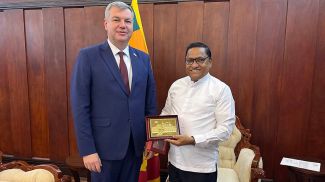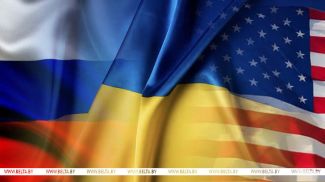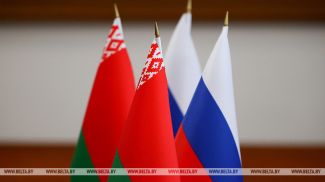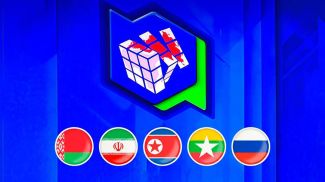MINSK, 8 July (BelTA) – The future of Ukraine will look like the Partition of the Polish–Lithuanian Commonwealth (Rzeczpospolita), Russian political expert Semyon Uralov told the On Point online project on BelTA's YouTube channel.
“I think this crisis will drag on for decades, it will have an entry point and an exit point. The acute phase began in 2014 and lasted for eight years. It will be followed by another phase that will also last around eight years. Most likely it will look like the Partition of the Polish–Lithuanian Commonwealth. In other words, Ukraine will lose territories one by one. I worked in more than 20 regions of Ukraine, one way or another. Ukraine is very diverse. I would divide it into at least eight different sub-regions. They are all very different and each of them will have their own destiny. There is one large sub-region, let's call it South-East - Left Bank, Novorosia. There are three more sub-regions there. These are Slobozhanshchina in the center with Kharkov and Donbass. There is the Black Sea region. One way or another, this area will either join Russia or fall into the zone of influence of Russia. This is what we see in Zaporozhye and Kherson Oblast,” he said.
Another region is the Dnieper region. “Its territory encompasses the Krivoy Rog iron ore basin, with most of Ukraine's natural resources. The people of Kolomoisky have entrenched themselves there and it is located partly on the right bank, partly on the left. I think it will turn into a big gray zone, because geography will determine everything there. The first geographical barrier is, of course, the Dnieper River. The future of the Dnieper River is being decided now. And the next geographical border is the Carpathians,” the political scientist noted.
According to him, Western Ukraine consists of 4 sub-regions: Volyn, Galicia, Transcarpathia and Bukovina. “They are very different from each other,” he stressed. “Volyn, I think, will somehow lean towards Belarus. I don't want to make predictions, it's wrong, but in terms of the mentality and the way of life people of Polesie and Volyn tend to be closer to Belarus. Hungary will somehow play a role in Transcarpathia. I am sure about it. There are a lot of ethnic Hungarians there and they have their own history of relations. Bukovina is strongly influenced by Romania and Moldova. Galicia is different. It is the ideological center of Bandera ideology. Though it has recently changed a lot. Nothing has russified the Galicia region as much as the current crisis. A great number of people from the Russian-speaking Kharkov, Dnepropetrovsk have fled there. Therefore I expect inter-ethnic tensions there. There will be a very serious social conflict between those who came from the Russian-speaking east and local residents. Fingers crossed, things would not escalate to pogroms."
The expert also singled out the agrarian central part of Ukraine. "They are poor in mineral resources. These are Vinnitsa, Khmelnitsky, Kiev, Cherkassy, or in other words, the Dnieper River region up to the north of Odessa Oblast. For example, Odessa Oblast also represents three dissimilar areas. The north of it (Balta, Podolie) is like central Ukraine. The south of Odessa Oblast (Bessarabia, Izmail, Belgorod-Dnestrovsky) is more similar to Moldova. It is inhabited by Bulgarians and the Gagauz. And then there's Odessa proper. It's like St Petersburg, a city-state. Who is now head of the Odessa military administration? War criminal Maksim Marchenko, the former commander of the Aidar battalion, a native of Donbass. Will he surrender? I doubt it," he said.
"Such situations, when garrisons are commanded by notorious war criminals, who have already been convicted in our country, will dictate the future of Ukraine. Each city will self-determine, in one way or another. Because local elites only care about their own interests. They have already armed themselves under the guise of territorial defense. In many places mayors took control of the territorial defense, joined forces with the local organized criminal groups to protect their property. On the other hand, there are cases when war criminals like Maksim Marchenko are heading garrisons. As our allied army approaches these cities, each of them will self-determine. Who of them will prevail? It may be local elites, as it happened, for example, in Kherson where everything went very smoothly, without any pain at all. Many elites will make a choice based on their economic interests. Meanwhile, war criminals heading garrisons understand that they will be held accountable," Semyon Uralov added.













